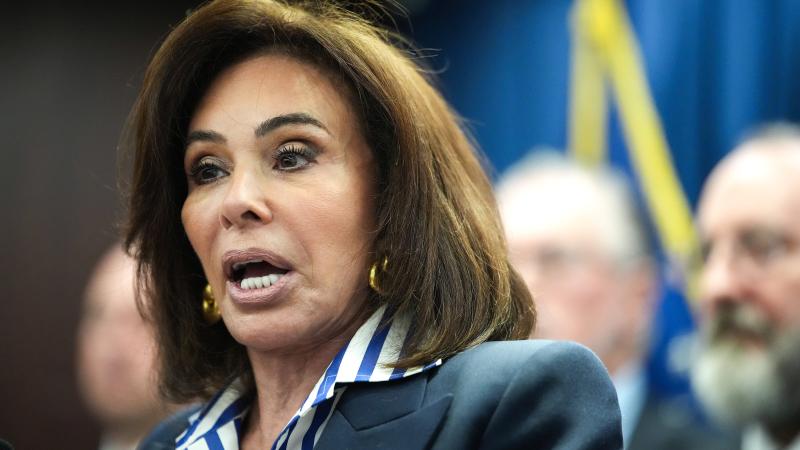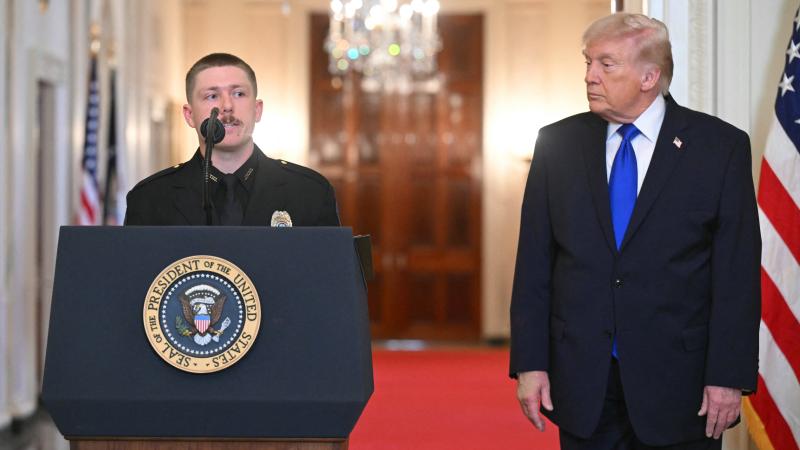Kamala Harris moves one step closer to smashing glass ceiling at White House
If Biden is certified by states as election winner, Californian will become America's first female VP.
Dressed in sweats on a bright, sunny Saturday morning, Kamala Harris reached for her cell phone. Moments earlier major news media outlets had just projected Joe Biden had won the 2020 presidential election after a marathon three days of vote counting.
“We did it, Joe. We did it,” the California senator exclaimed to Biden on the phone.
If certified state results affirm the news media’s call in coming weeks, Kampala Devi Harris — the child of Indian and Jamaican immigrants who rose rapidly up California’s political ladder — will smash through the White House glass ceiling to become America’s first female vice president.
It’s an office two others before her — Geraldine Ferraro and Sarah Palin — were nominated for by major parties but failed to attain.
"While I might be the first woman in this office, I won't be the last," Harris said Saturday night as she introduced Biden before a nationally televised celebration. “Because every little girl watching tonight sees that this is a country of possibilities."
Born of two immigrant parents in Oakland, Calif., and rooted in the liberal activism of nearby Berkeley, Harris says she was introduced to politics when her parents pushed her in a baby carriage while marching at rallies in the 1960s.
Her late mother, Shyamala Gopalan, was born in India and later studied at the University of California at Berkeley, where she met her future husband, Donald H. Harris, who was born in Jamaica and studying economics.
In 2004, Harris was the first woman elected San Francisco’s District Attorney. By 2007, California voters elected her their first female Attorney General.
When U.S. Senator Barbara Boxer decided not to run for reelection, Harris threw her hat in the ring, and won.
And, without even completing her first term, Harris decided to run for the 2020 Democratic presidential nomination.
For years on the campaign trails, Harris has spoken of her deep admiration and respect of women who went before her in politics, reciting her late mother’s belief that all was possible.
Most important to her was how she felt about politics — “Kamala Harris, For the People,” she would remind her supporters just as she had spoken in court as a prosecutor.
Harris has talked publicly about her high regard for Shirley Chisholm, the first African-American woman elected to Congress from New York, whose family also hailed from the Caribbean in Barbados.
Chisholm was elected to the U.S. Congress in 1968. In 1972, she was the first African-American woman who ran for the Democratic presidential nomination, losing to George McGovern.
Harris’ respect for Chisholm was so strong that she chose Chisholm’s 1972 campaign colors of red and yellow for her own 2020 presidential campaign.
But it was not until 1984 that a women was chosen to be on a presidential ticket.
Democratic presidential nominee Walter Mondale chose Rep. Geraldine Ferraro (D-N.Y.), also a former prosecutor like Kamala Harris.
Twenty-four years would pass before a woman was again on a presidential ticket.
In 2008, the Republican Party chose John McCain as their presidential nominee. The Arizona maverick stunned the political world by picking the little known then-Governor of Alaska Sarah Palin as his vice-presidential running mate.
The last time a woman was on the ticket was when Hillary Clinton lost to President Trump in 2016.
Harris’ potential inauguration as the first woman vice-president will fittingly fall in the shadows of the 100th anniversary of the ratification of the 19th amendment giving some women the right to vote in 1920. More than a century earlier, Abigail Adams wrote to her husband during the Continental Congress in the late 1770s with a far more modest ambition.
“Remember the Ladies. And be more generous and favorable to them than your ancestors,” Mrs. Adams wrote her husband, who would later become the second president of the United States.
Chisholm would recall Abigail Adams' words years after she audaciously sought the presidency, suggesting there were far greater goals ahead for America's women. Harris is a step closer to achieving one of them.
















